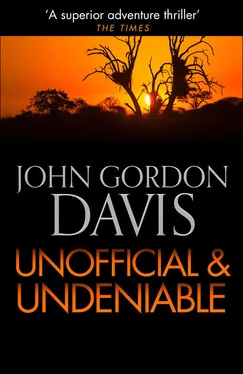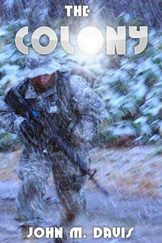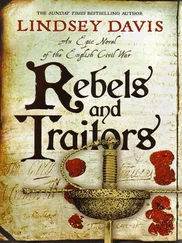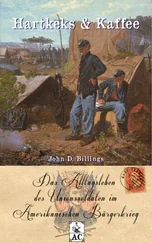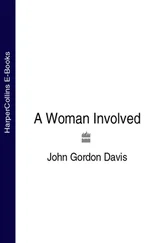What’s new is that you’ve gone soft in two years in New York – your heart’s not in soldiering any more …
God, he wanted a drink. To ease his nerves, to help his hangover – that was certainly part of his problem, he’d been drinking too much. But he dared not.
To kill the time he pulled out Josephine’s file, and he sat down behind his desk and tried to read again the stories she had written. But he could not concentrate on that either; he flipped through the file, looking for photographs of her.
Oh , she was beautiful. Just then the telephone rang. He snatched up the receiver. ‘Hullo?’
‘Is that Buttons and Bows Night Club?’ Dupont said.
Harker closed his eyes, his heart knocking. ‘Sorry, wrong number.’ He hung up.
Harker slumped, then picked up his cellphone, his hand shaking. He dialled.
‘Buttons and Bows,’ Clements said.
‘I want to speak to Mr Buttons, please.’
‘He’ll call you back in about twenty minutes, sir.’
It was a long twenty minutes waiting for Clements’ next call. ‘Awaiting your pleasure, sir,’ he said.
Harker picked up his holdall and clambered up the narrow staircase into his upper office. He opened the big front door of Harvest House and stepped out into the spring night. The car was parked fifty yards down the road: the driver flashed his headlights once. Harker climbed into the front passenger seat. A man called Parker, one of Clements’ salesmen, was at the wheel. ‘Good evening, sir,’ they all said.
‘Good evening,’ Harker said tensely. ‘Let’s go.’
At nine o’clock that Saturday night they were creeping through the forest, approaching the farmhouse. Now they were all in black tracksuits, wearing balaclavas, carrying the machine-pistols Harker had distributed.
The clapboard house was about fifty years old, the paint peeling off the wood, the yard around it sprinkled with weeds and shrubs. The house was in darkness. The listening gear was in position. Harker gave his instructions and Clements moved to take cover facing the front door, Spicer went off to cover the kitchen door, Trengrove disappeared around the other side of the house to the living room window. Harker remained with the listening device, covering the dining-room French window. They settled down to wait.
It was a very long hour before the headlights came flicking through the forest. The car came up the winding track into the yard, its headlights now blinding. Harker lay beside the listening gear, his heart pounding; the vehicle’s doors opened and one by one five dark figures clambered out. They were hardly talking, only a mutter here and there as they stretched and reached for luggage. Then, while the headlights illuminated the kitchen door, they trooped towards it, carrying their briefcases and baggage. For the first time Harker could distinguish the blacks from the Cubans, but he could not identify anybody. They clustered around while one of the Cubans selected and inserted a key.
Harker snorted to himself. It would have been an ideal moment to hit the whole damn lot of them: no fuss, no risk. But no – goddam Dupont wanted to record what they talked about first. The Cuban unlocked the door and they filed inside. Lights went on. Harker glimpsed them filing through the kitchen into the dining room. They clustered around the table, and one of the Cubans produced a bottle from his briefcase.
Harker put on the headphones of the listening device. He could hear mumbled speech. He turned the tuning knob and the volume. Suddenly he heard a Cuban say, ‘Close the curtains. Sit down, please …’ He heard the scraping of chair legs on the floor. More mumbles. The tinkle of liquor being poured. Then the meeting began.
Harker listened intently, his tape-recorder turning; then he closed his eyes in relief. Thank God … Thank God this murder was not unjust. The bastards were certainly plotting murder. Mass murder. Planning to detonate three car-bombs at twenty-four-hour intervals: the first at the Voortrekker Monument on a Sunday, the second at the Houses of Parliament on Monday, Johannesburg’s international airport on Tuesday. Harker smiled despite himself – the chain of events would be effective: the Voortrekker Monument job would infuriate, the Houses of Parliament job would vastly impress, the Johannesburg airport job would downright terrify. The psychological impact upon the South African public, coming one after the other, boom boom boom, would be enormous. In fact, listening to the muffled indistinct speech, Harker was surprised they settled for only three bombs – why not half a dozen, throw in the Union Buildings in Pretoria where all the top government departments hang out, the Reserve Bank down the road and, say, the City Hall. Harker had always wondered why the ANC hadn’t done all that years ago – they really were, militarily speaking, a milk-and-water bunch. MK, the Spear of the Nation, the ANC’s army, had never waged a battle. The only thing that gave them clout was the moral turpitude of apartheid.
For an hour Harker tried to listen to the plotting going on in the house, over the coughs and mumbles and mutters and occasional laughter, the glug of liquor and the click of cigarette lighters; he could only make out snatches of detail and he hoped the tape-recorder was picking up more. Then suddenly the meeting sounded as if it was over: he heard a burst of song in Spanish, followed by guffaws.
Harker took a deep breath – it was time to hit. He took off his headphones and whispered into his radio transmitter.
‘H-hour coming up. Do you read me? Come in one at a time.’
‘One, copy,’ Clements said.
‘Two, copy,’ Ferdi Spicer said.
‘Three, copy,’ Trengrove said.
‘Okay,’ Harker said, ‘we hit on zero … Five … Four … Three … Two … One … Zero!’
Out of the forest sprang the four dark forms. They ran through the darkness at the house. Harker raced up to the curtained dining-room French window, a stun grenade in his hand: he yanked out the pin with his teeth and hurled it through the window. There was a shattering of glass, then a detonation that seemed to shake the earth. Then there was a crack as Spicer kicked the kitchen door in, another as Clements did the same to the front door. Harker burst through the window and opened fire. And there was nothing in the world but the popping of his machine pistol, then the noise of Spicer’s and Clements’ as they covered the two principal escape routes.
In the cacophony Harker did not hear the shattering of the living room window as a black South African called Looksmart Kumalo dived through it, through Trengrove’s hail of bullets, scrambled up and fled off into the black forest. Trengrove went bounding frantically after him, gun blazing, but in an instant the darkness had swallowed him up. Trengrove went crashing through the black undergrowth, wildly looking for the runaway man, but Looksmart Kumalo, badly wounded, was hiding under some bushes. Trengrove crashed about for several hundred yards, then he turned and went racing back to the farmhouse.
Harker was frantically collecting up all the documents, baggage and briefcases while Clements and Spicer were fixing explosives to the dead bodies. ‘Where’s the other body?’ Clements demanded.
‘Sir!’ Trengrove shouted. ‘He escaped into the forest!’
‘Christ!’ Harker stared. ‘Christ, Christ, Christ!’
‘Go after him, sir?’ Clements rasped.
‘Yes!’ Harker shouted. ‘Spicer stays and finishes the explosives! Rest of you go. Go!’
For twenty minutes Harker, Clements and Trengrove thrashed through the black undergrowth of the forest, trying to flush out the runaway, hoping to stumble across the dead body. It was hopeless – nobody can track in the dark. After twenty minutes Harker barked a halt. If the bastard survived he was unlikely to tell the American police that he was attacked during a murderous conspiracy meeting in an illegal Cuban safe-house.
Читать дальше
